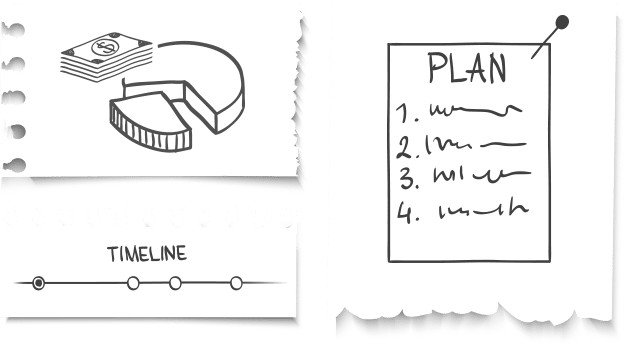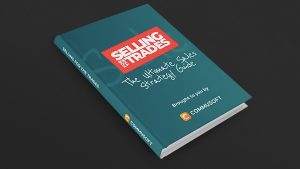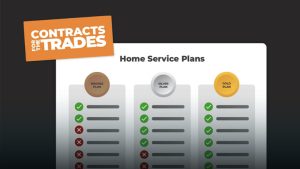The Ultimate Guide to Sales Strategy

It’s Time to Overhaul Your Sales Strategy
The Ultimate Sales Strategy Guide offers trades businesses a comprehensive methodology of sales best practices to follow. You and your team can use this guide to develop the mindset, structure, and skills needed to implement a winning sales strategy – and ultimately grow your revenue.
You’ll learn all about:
- Adopting a Sales Mindset
- Mastering Your Sales Pipeline
- Building Winning Sales Proposals
- Closing More Deals with Financing
- Measuring Success with Sales Reporting
- Implementing Your Own Sales Strategy
By working your way through each section, you’ll walk away with the knowledge required to further develop your own expert sales strategies. We’ve also provided a variety of downloadable resources for you to put into action, as well as videos, expert tips, and more for you to learn from as you create your sales plan!
To help out with sales terminology and ensure everybody is on the same page, this sales strategy guide includes handy definitions of key sales terms and phrases as they are used throughout. For instance, check out the definition of a sales strategy below, or explore the entire sales terms glossary, here, if you want to go into a little more depth.
With that all said, there’s a very important question to ask: why do you want to improve your sales strategy?
Why Do You Want to Improve Your Sales Strategy?
It may seem like there’s an obvious answer: more money. But the reality is all trades businesses will have different motivations for wanting to improve their sales strategy (or for deciding to adopt one for the first time).
What you wish to achieve isn’t necessarily the same as every other service, maintenance, or installation business out there; every business is unique. As such, how you choose to implement your sales strategy will depend on your ultimate motivations.
Although every business is unique, it’s still possible to form generalised categories by motivation. You may find your business fits neatly into one of the below categories, into two, or even all three – or perhaps none at all.

Motivation
Expansion
Businesses that are motivated by expansion are looking to win a greater number of jobs, hire more engineers as a result, and ultimately grow the size of their business.
Motivation
Process
Businesses that are motivated by process are looking to streamline how they sell, save time for their team, and improve their customer journeys. They don’t necessarily wish to complete more jobs.
Motivation
Profits
Businesses that are motivated by profits are looking to increase how much money they make per job and to optimise their margins. They don’t necessarily wish to complete more jobs.Of course, these are not mutually exclusive groups; business expansion is difficult to achieve without a streamlined sales process – and improving your process can also increase profits. But nonetheless, it can help you to start thinking about which of these motivations (or any other motivation) is most important to you and your business.
Don’t Mistake Sales for Marketing
If you’ve arrived at this guide hoping to learn how you can get more leads, improve your reputation, or increase your presence on social media, you may be mistaking sales for marketing.
Whilst they can be similar (and are intrinsically linked) it’s vital to understand that sales and marketing are sequential: all the marketing efforts your business makes is what feeds into your sales.
Marketing is all about acquiring leads, whether through your website, over the phone, or by word of mouth. Sales begins when you or your team reach out to those leads and begin the active process of selling.
Lead
This refers to a person who enquires about your services, but hasn’t yet begun the sales process with your team.Now that we’ve touched on motivation and the difference between sales and marketing, let’s begin the Ultimate Sales Strategy Guide with a deeper look at the sales mindset and why it’s so important.
Question
Which is your most important motivation when it comes to sales?
So, it’s all about growth: more customers, more jobs, more engineers? To achieve those goals and give yourself room to focus on your business’s expansion, you’ll need to master your selling across all the points in our sales guide. For further tips on hiring engineers check out: the best questions for a field service engineer and game-changing ways to hire engineers.
Is saving time, reducing admin, and becoming more efficient what you’re after? Then pay special attention to Chapter 2 of this sales guide; there, you’ll discover a detailed approach to making your sales more systematic with a sales pipeline.
Looking to maximise how much money your team brings in? If you aren’t explicitly looking to increase the quantity of jobs too, check out Chapter 3 and the sections on offering multiple options and add-ons in your proposals. Once you’re done, we also have tips on how to raise your prices, which you may find useful!









